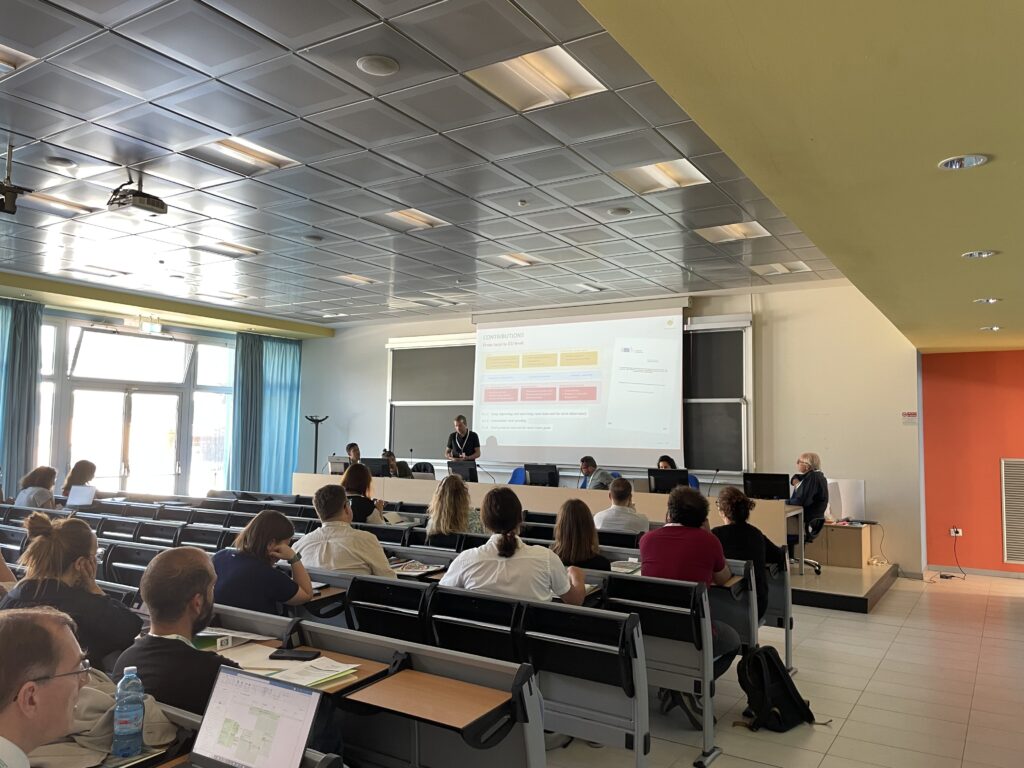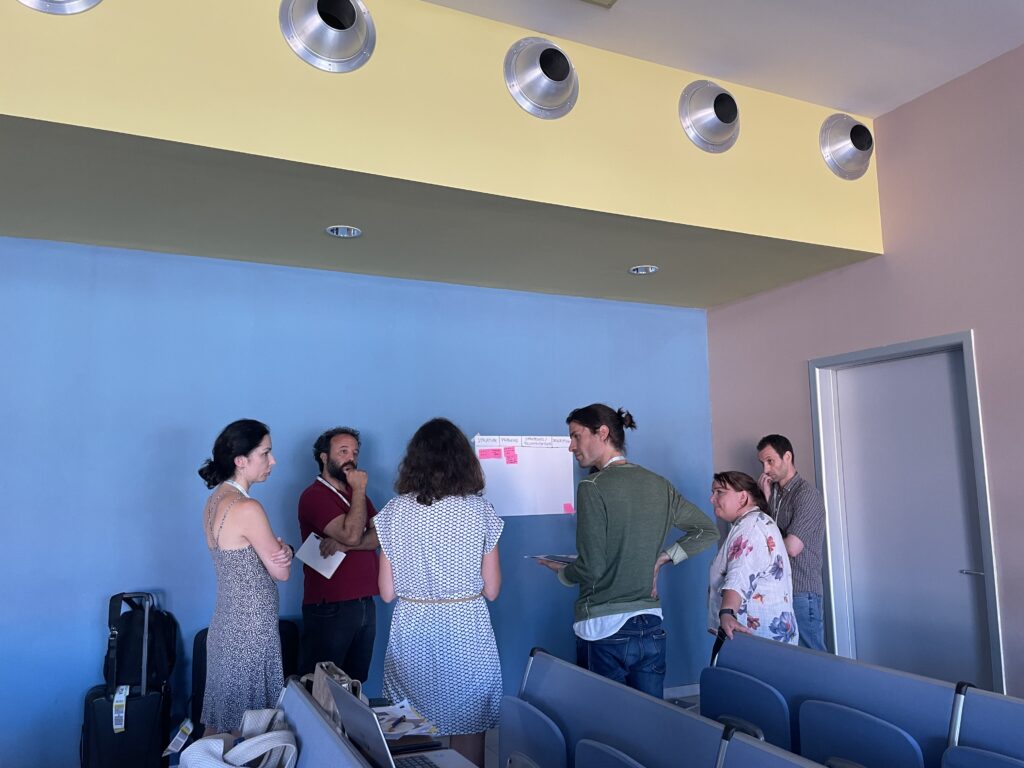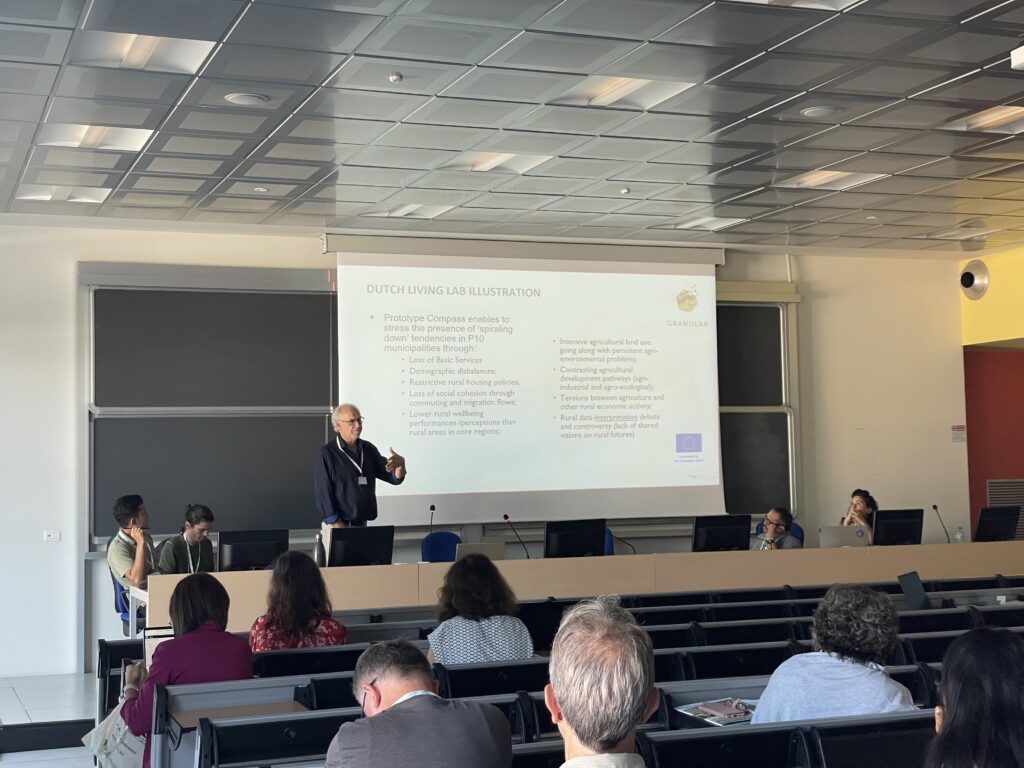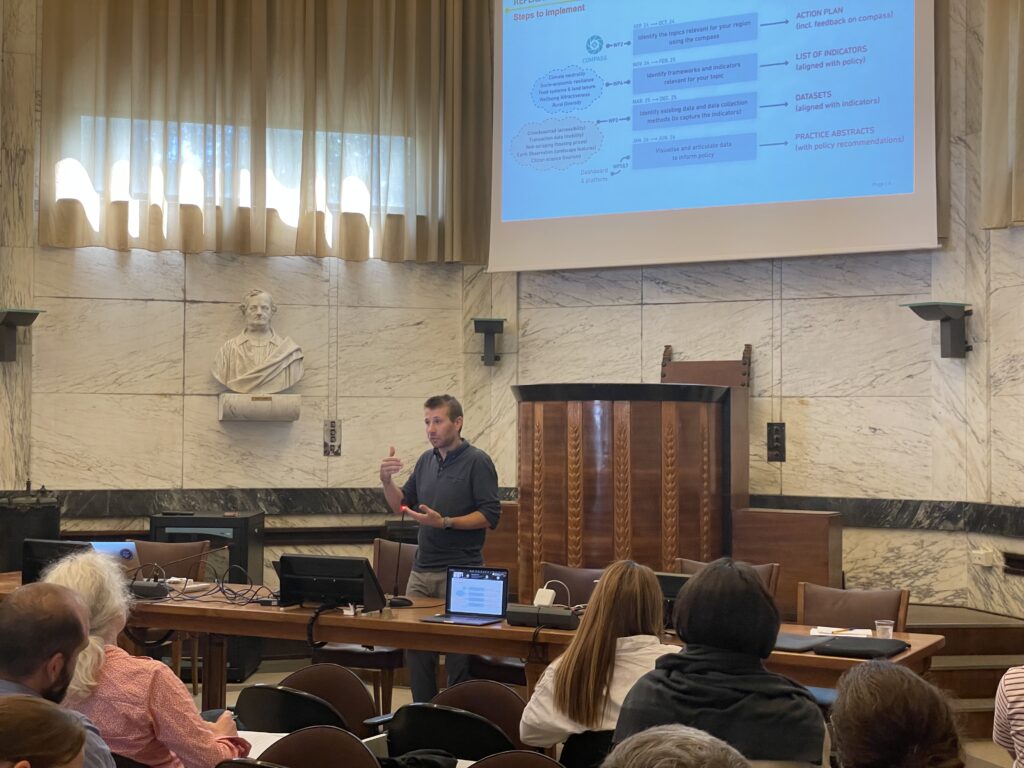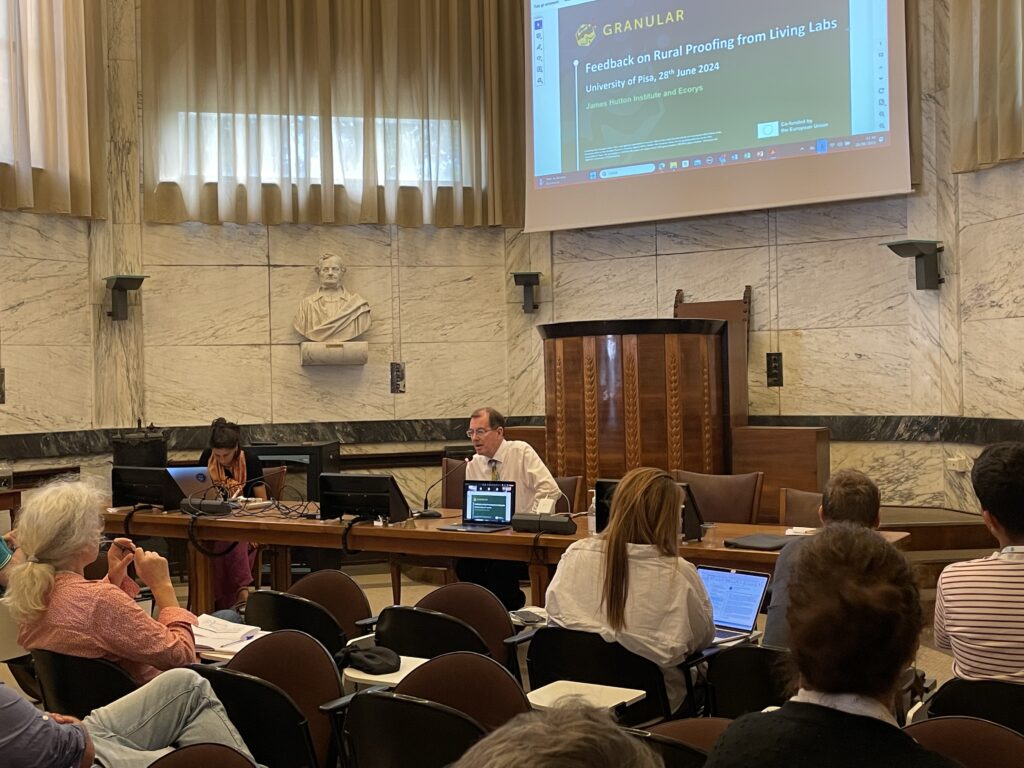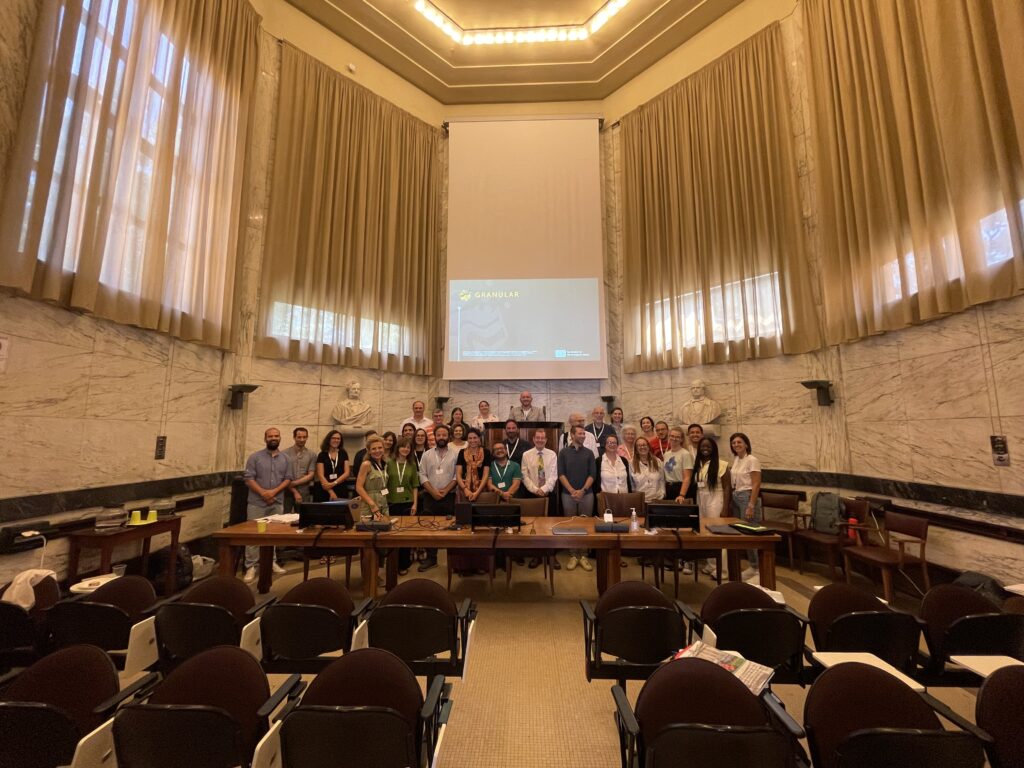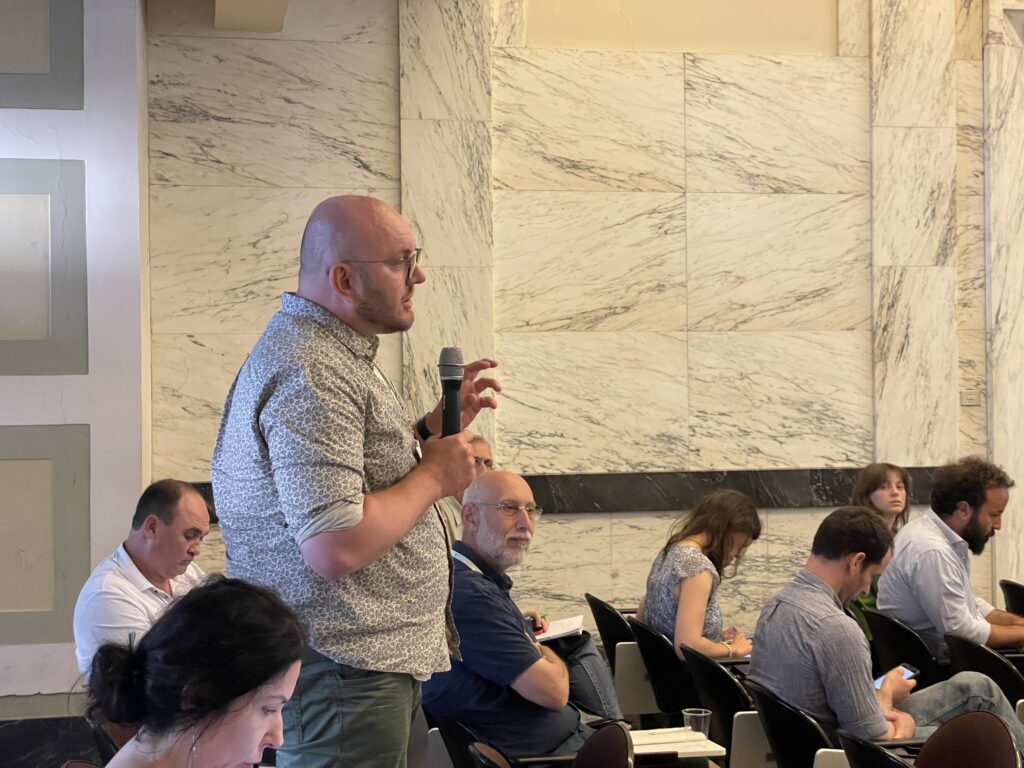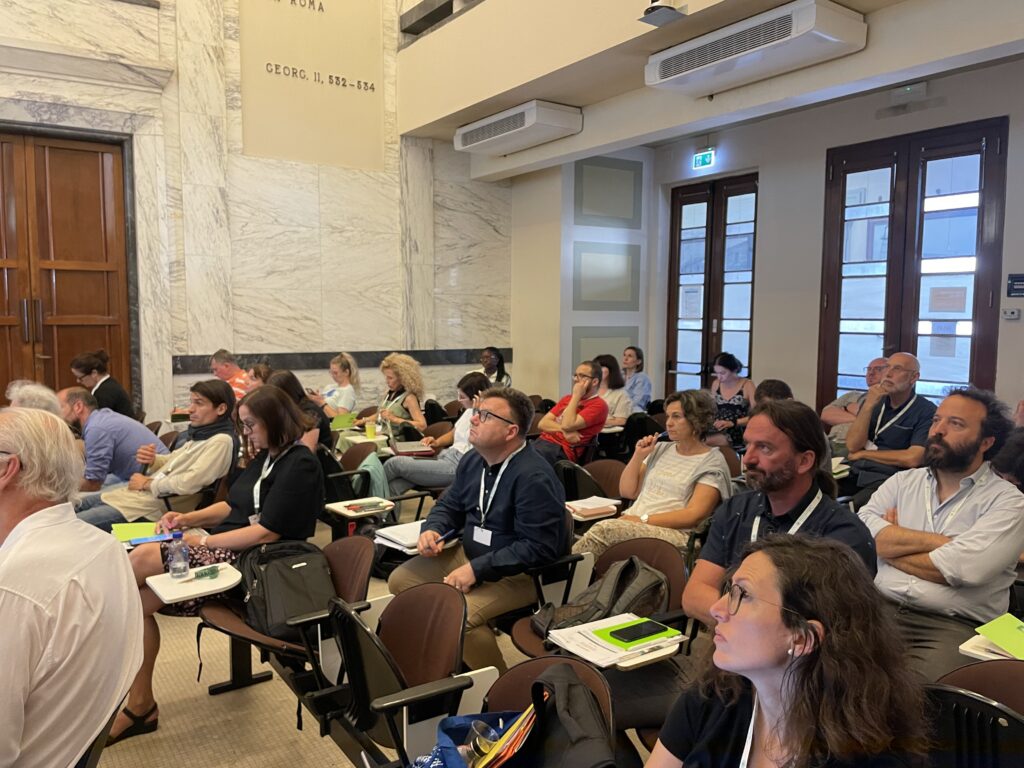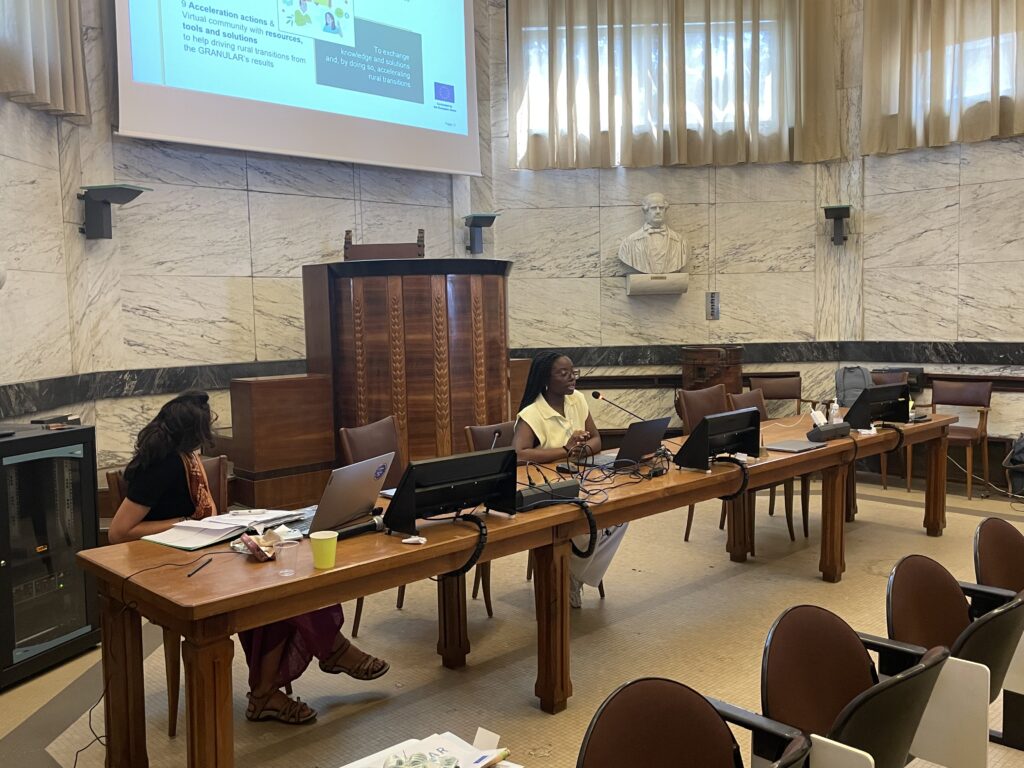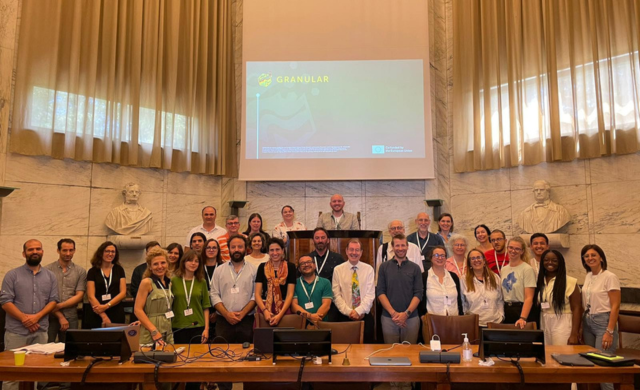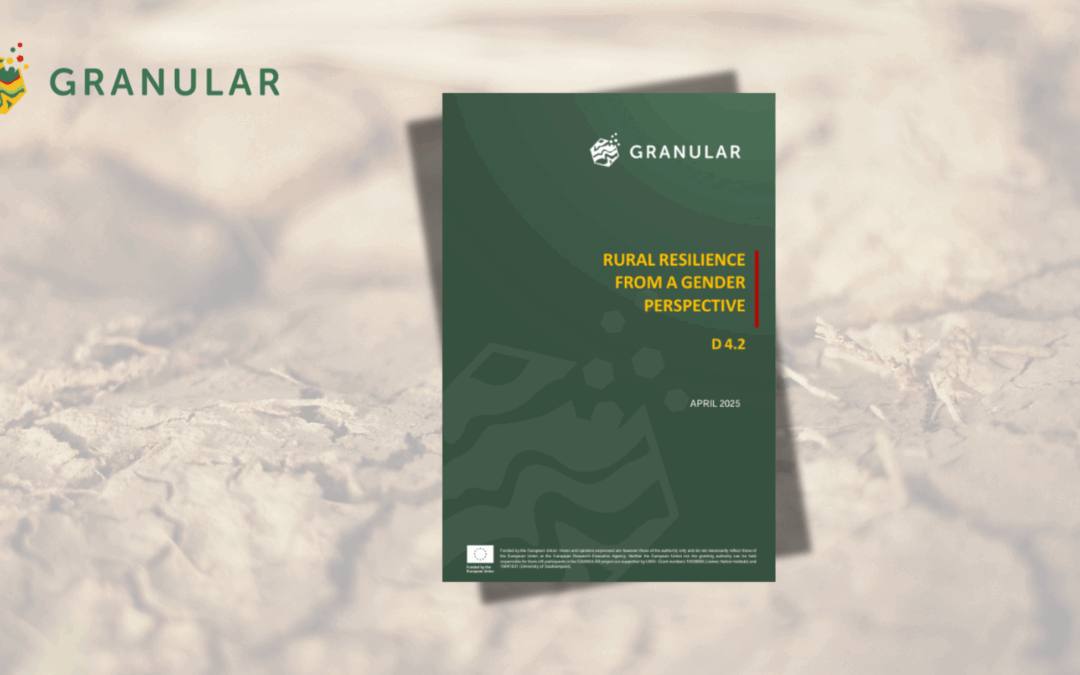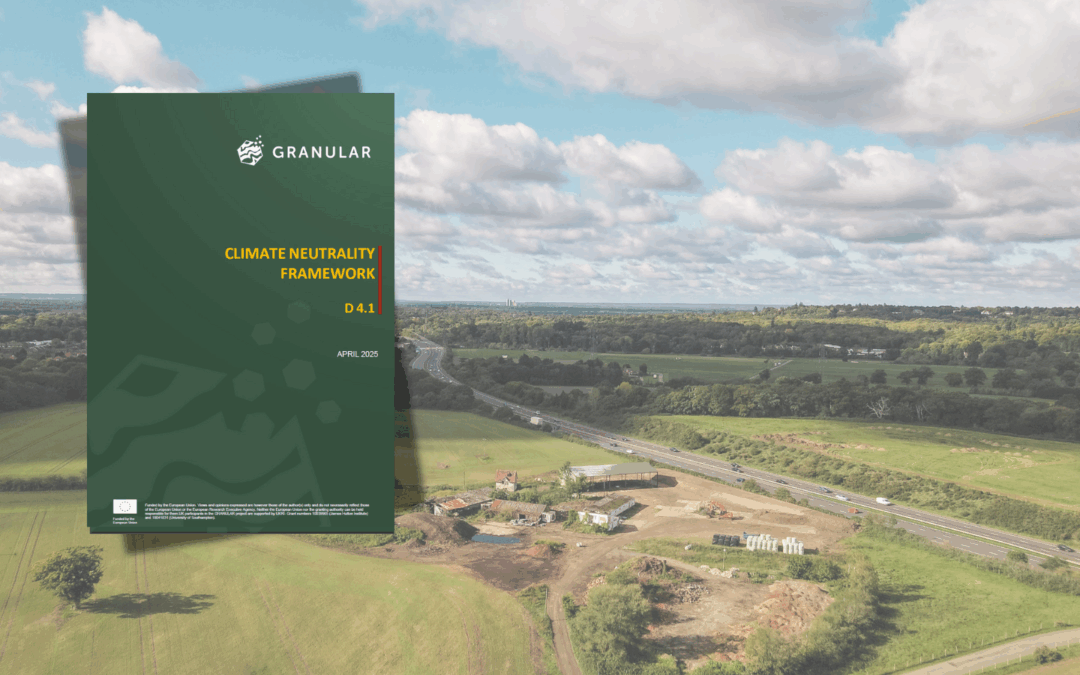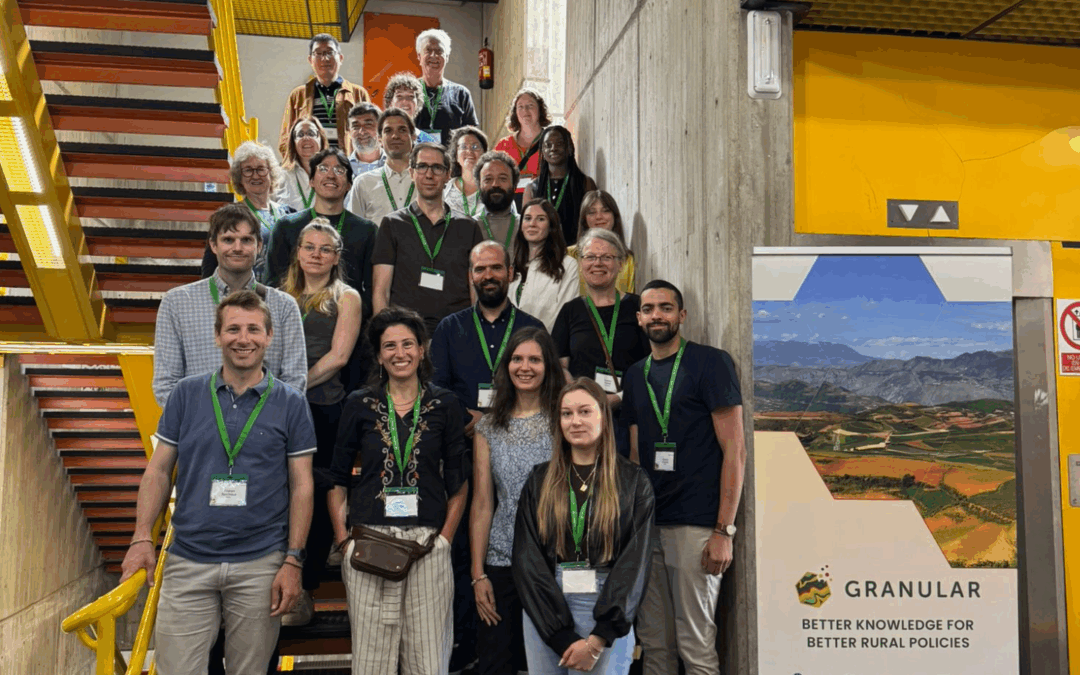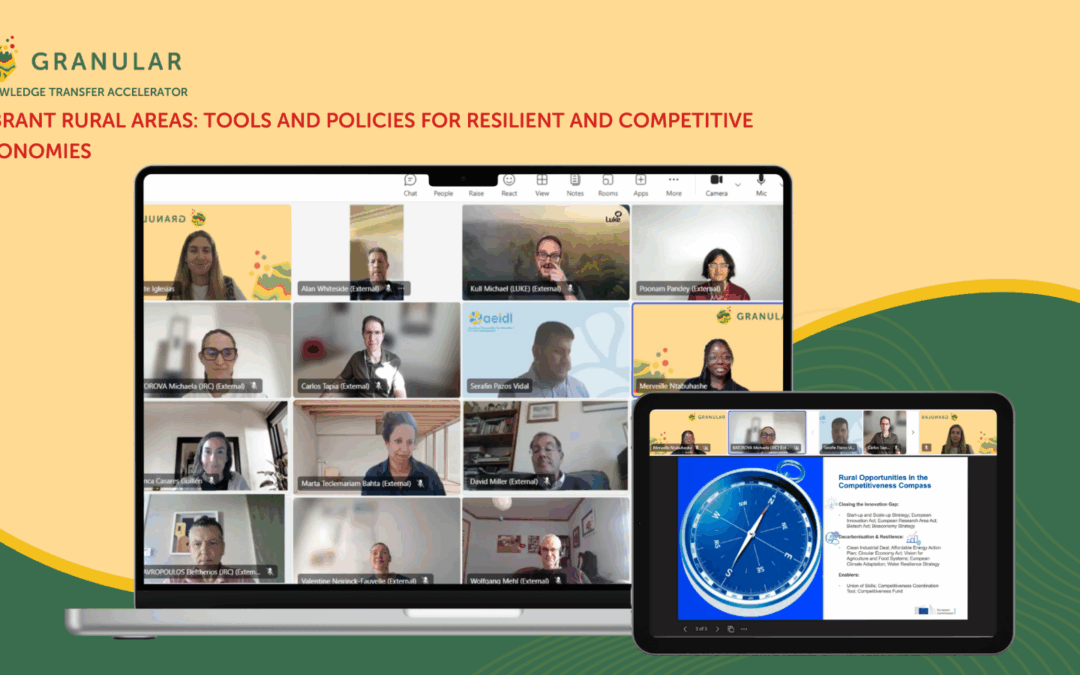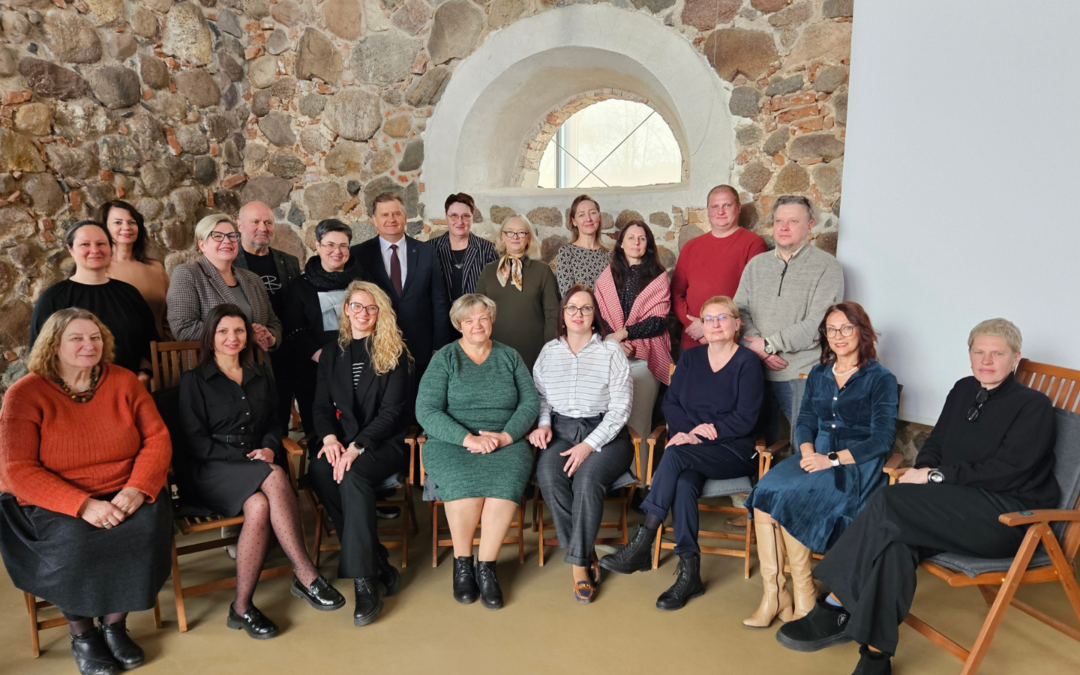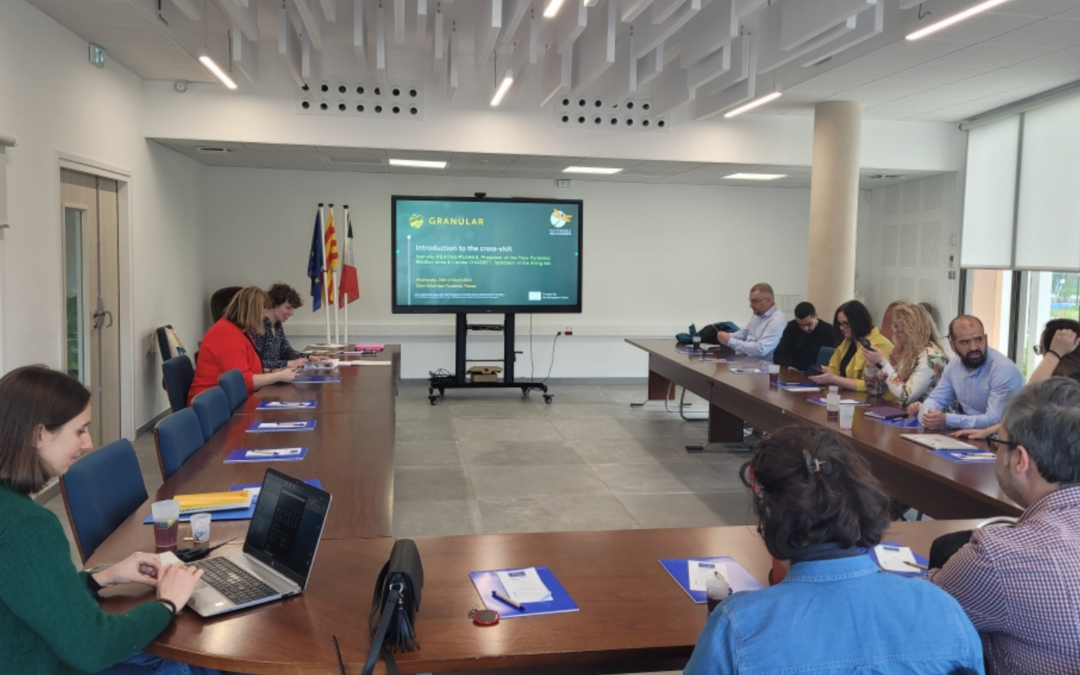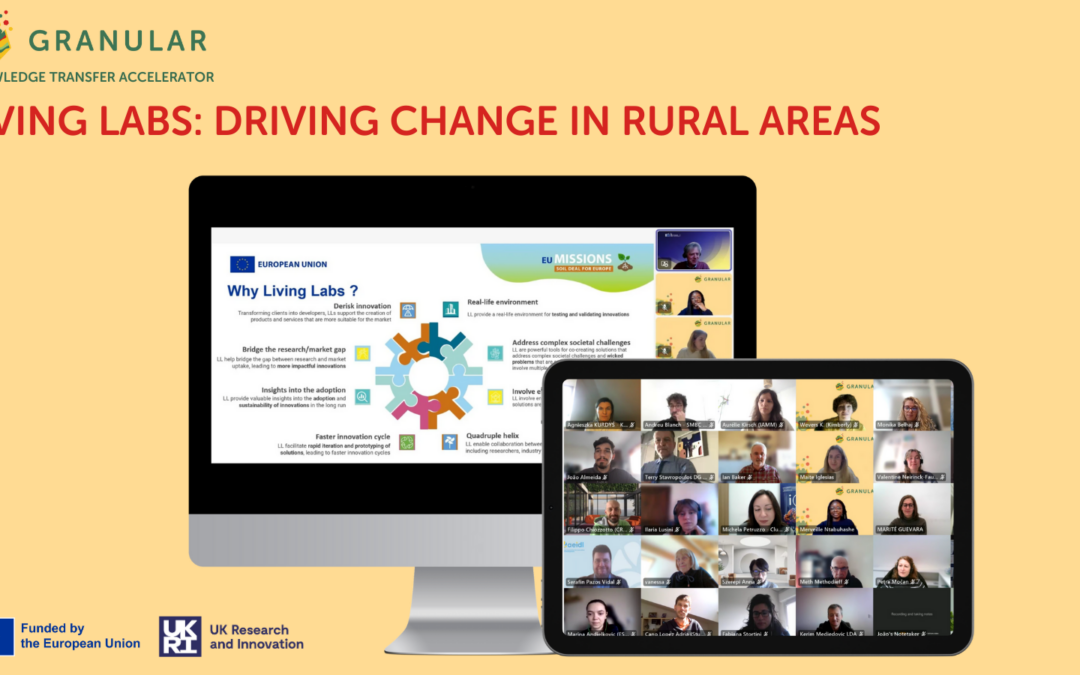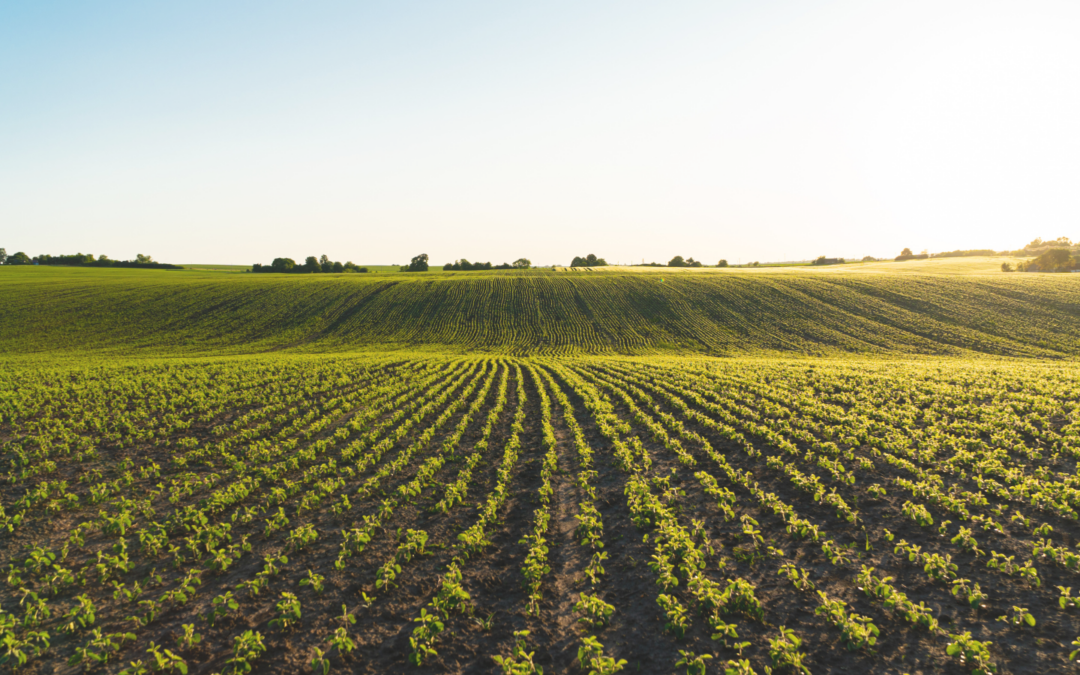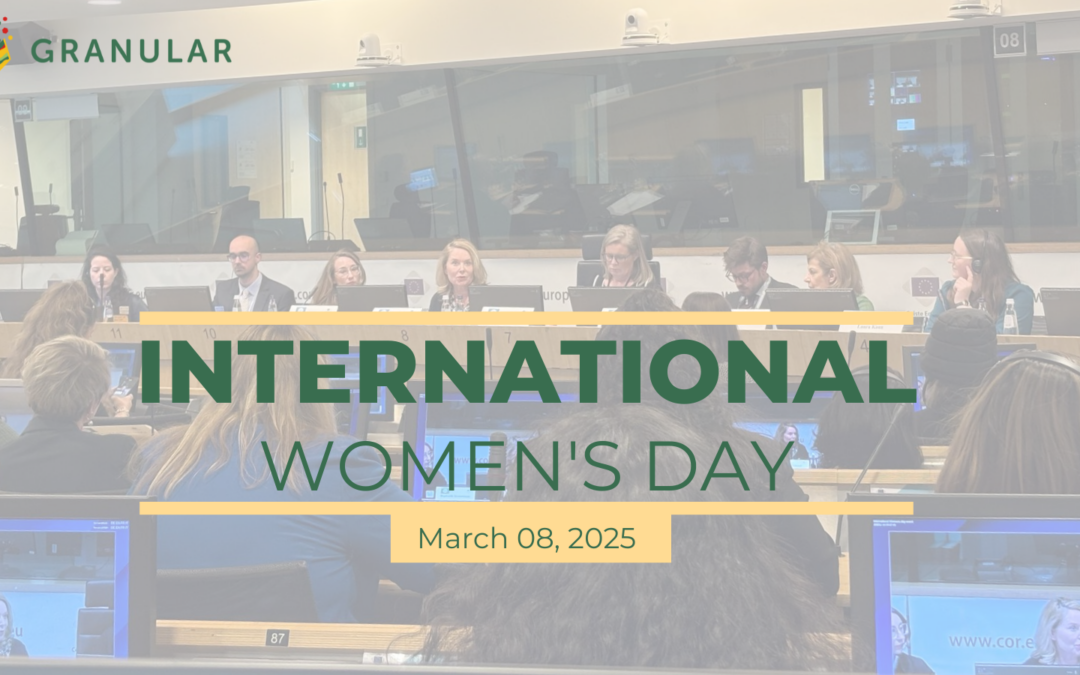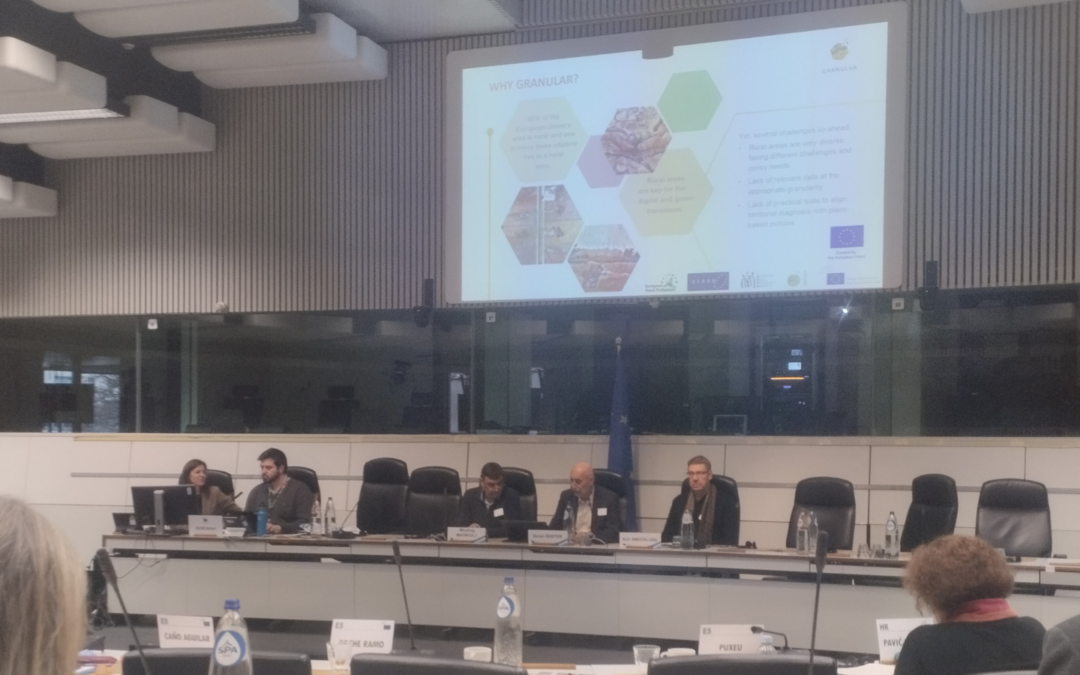On June 27 and 28, the GRANULAR project held its annual reflective workshop for Living Labs and Replication Labs. Hosted by the University of Pisa, this gathering brought together project partners to reflect on their progress and chart the path ahead as they approach a pivotal phase of delivering their first results.
Collaborative learning for Living and Replication labs
The workshop set the stage for collaborative learning and planning among the diverse stakeholders involved. A significant part of the event was dedicated to introducing the Living Labs and Replication Labs, emphasising the importance of feedback sessions in shaping upcoming tasks. A key focus was the introduction of the Replication Labs, tasked with testing the replicability of methods and tools developed by the Living Labs across various rural contexts in Europe. This phase is essential for validating the project’s data and indicators and ensuring their applicability in different settings.
Participants engaged in a series of workshops aimed at addressing challenges and sharing best practices. They were divided into groups to discuss topics such as local needs identification, actor involvement, governance structures, and required skills and competencies. Additionally, case studies from the Spanish Living Lab Oruense and the Dutch Living Lab P10 were presented, offering practical examples of data collection processes and highlighting the challenges and solutions encountered.
GRANULAR tools and innovations
Wageningen University presented the Rural Diversity Compass prototype, a tool designed to offer deeper insights into rural differentiation drivers and support data collection and indicator development. This prototype will undergo further refinement and testing in collaboration with Living Labs and Replication Labs, enhancing its effectiveness in rural proofing.
In addition, a session on rural proofing was delivered by the James Hutton Institute, emphasising its significance for the European Commission’s Long-Term Vision for Rural Areas (LTVRA). The presentation also highlighted the importance of improving rural statistics and data, aligning with the goals of the EU Rural Observatory – a key component of the GRANULAR project.
Furthermore, AEIDL introduced the GRANULAR Knowledge Transfer Accelerator, a platform designed to facilitate the exchange of knowledge and solutions among individuals and organisations involved in rural development.
Looking ahead
The annual reflective workshop in Pisa marked a significant milestone for the GRANULAR project. As the Living Labs and Replication Labs move forward with their activities, the insights and strategies developed during this workshop will play a crucial role in ensuring the success of the project’s next phase.
